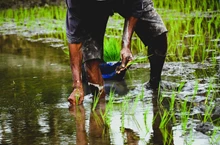
Legumes, peas, black peas, and nuts can be germinated as sprouted seeds as they possess several health benefits. Intake of sprouted seeds on daily basis will help you in weight loss and cure many diseases and health issues.
Different types of sprouts
As sprouts grow from seeds of vegetables and grains, they fall under four categories.
-
Bean and pea sprouts: Sprouts such as mung bean, kidney bean, black bean, lentil, and snow pea sprouts.
-
Nut and seed sprouts: These include pumpkin seed, sesame seed, sunflower seed sprouts.
-
Vegetable sprouts: Sprouts such as broccoli, alfalfa, red clover sprouts, and mustard green.
-
Sprouted grains: Most common sprouts that belong to this category are wheatgrass and quinoa sprouts.
In the case of brussels sprouts, they are like regular plants, came in the same family as cabbage, kale, broccoli, and cauliflower. It does not grow in a warm water environment, thus has no part in the sprout group.
The risk of eating sprouts
It can save you from the risks of heart-related diseases and it improves blood sugar levels. Sprouted seeds relieve you from digestive issues, but consuming them on an empty stomach in the morning perhaps causes a hazard to the body. It might lead to foodborne illnesses like E. coli and salmonella.
Similarly, green seedlings cause food poisoning due to the presence of some harmful bacteria. This bacterial growth occurred as they are germinated in warm and humid conditions.
Safety tips for eating sprouts
Often these sprouts lead to developing some ailments such as diarrhea, abdominal cramps, and vomiting.
It can be consumed safely if you cook it and chances are there to lose some vitamins and minerals but you’re still getting most of the nutrients.
Or else if you have fresh sprouts at home, they should be chilled and stored in a refrigerator below 40 degrees Fahrenheit.












